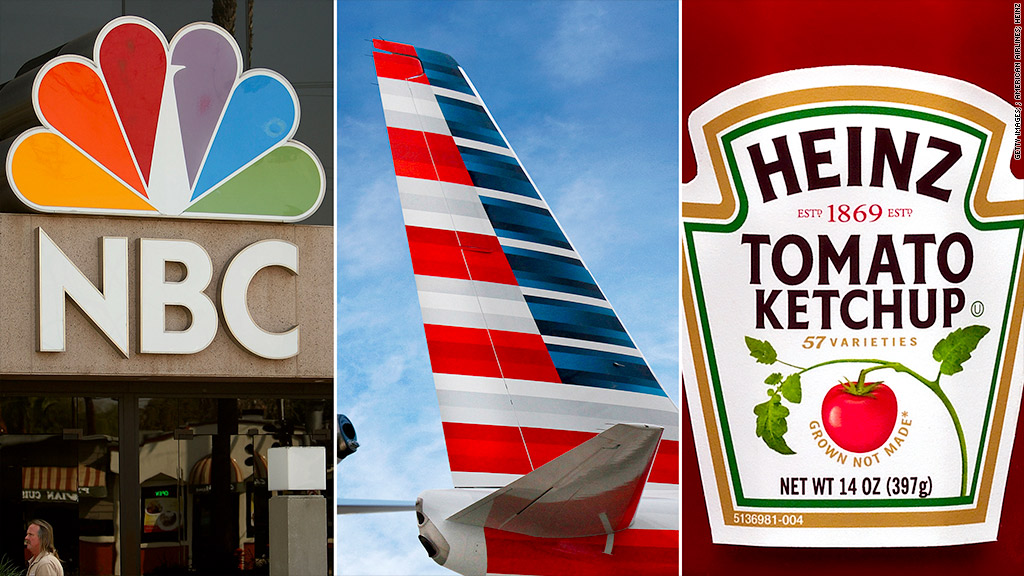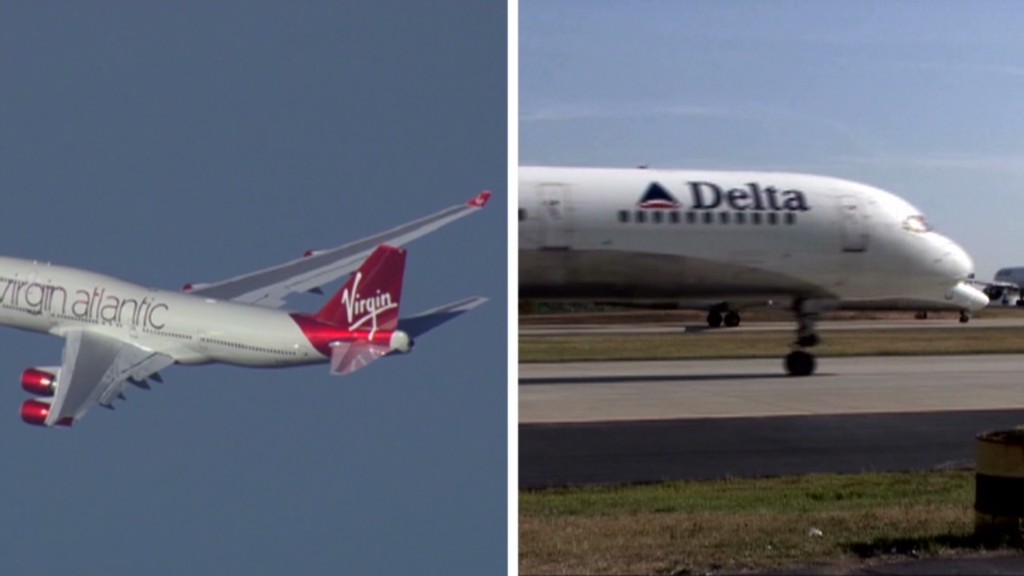
Merger Mania is making a comeback, and investors stand to reap the rewards.
Just this week, three deals, worth a combined $56 billion, have been announced.
The biggest, by far, was Berkshire Hathaway (BRKA) and 3G Capital's $28 billion plan to buy ketchup giant H.J. Heinz Co (HNZ), announced early Thursday. That deal, which is all-cash, pairs billionaire dealmakers Warren Buffett and Brazilian/Swiss businessman Jorge Paulo Lemann in an even 50-50 split.
The M&A door was opened by last week's announced $24 billion leveraged buyout of Dell (DELL), and Liberty Global's $23 billion acquisition of Virgin Media (VMED).
"There's a deep undercurrent of activity," said Chris Harned, a managing director in Baird's M&A practice. "2013 is going to be a very strong year."
If this week is any indication, Harned's predictions may come true.
In addition to the Heinz deal, Comcast (CMCSA) agreed Tuesday to acquire the 49% stake it didn't already hold in NBCUniversal from General Electric (GE) for $16.7 billion. And the much-anticipated airline merger between US Airways (LCC) and American (AAMRQ) was finally announced early Thursday.
With those three recent deals, this year's U.S.-based M&A activity is off to its fastest start since 2000, according to data from Dealogic.
Related: U.S. Airways-American to merge
While it's doubtful that there will be more Dell-sized LBOs, since there are very few companies with a founder like Michael Dell who can throw in a few billion, there could be more $20 billion M&A deals coming down the pike.
That's a marked turnaround from last year. The threat of a blow-up in the sovereign debt markets and the looming fiscal cliff crisis n the United States made companies had been wary of jumping into big deals.
With those issues mostly fading into the backdrop, executives are ready to make bold moves.
Investors are ready too. Companies have been sitting on record amounts of cash and are coming under increasing pressure to put it to work, said Sarkis Jebejian, an M&A partner at Kirkland & Ellis. "Activist investors are out in full force, and they're prepared to take on bigger and bigger projects."
Apple (AAPL) is a prime example. Last week, hedge fund manager David Einhorn implored Apple to give more of its $137 billion cash hoard back to shareholders. While Einhorn is pushing for a dividend, and not M&A, companies are still hoping to avoid these kinds of uprisings by proactively putting their cash to work.
A court hearing aimed at resolving the Apple-Einhorn issue is scheduled for next week.
Another incentive for companies to do deals: financing is plentiful. "There are very aggressive fixed income and capital market dynamics," said Harned.

All of that is good news for M&A advisers. Freeman & Co. estimates that bankers on the Liberty/Virgin deal took in fees of $75 million to $90 million. On the Dell deal, bankers could earn as much as $100 million.
Investors have been reaping rewards too. Share prices of target companies generally rally after a merger announcement, because buyers typically agree to pay a sizeable premium.
Take the $8.2 billion acquisition of the New York Stock Exchange by IntercontinentalExchange (ICE), announced in December. NYSE Euronext's (NYX) shares climbed more than 38% after the deal was announced, while ICE's shares gained 1.2%.
Recently investors have been rewarding buyers too. A month after the NYSE-ICE deal was announced, shares of ICE were up 16%.
While bankers and lawyers predict an uptick from the last several years, few expect M&A activity to hit pre-crisis levels.
Last year, a total of $982 billion of U.S.-based deals were announced. That's still down 35% from the recent 2007 peak, when the biggest deal was AT&T (T)'s $85.6 billion acquisition of BellSouth.
To get to that level, the deals in 2013 will need be big and broad.
-- CNNMoney's Catherine Tymkiw contributed


